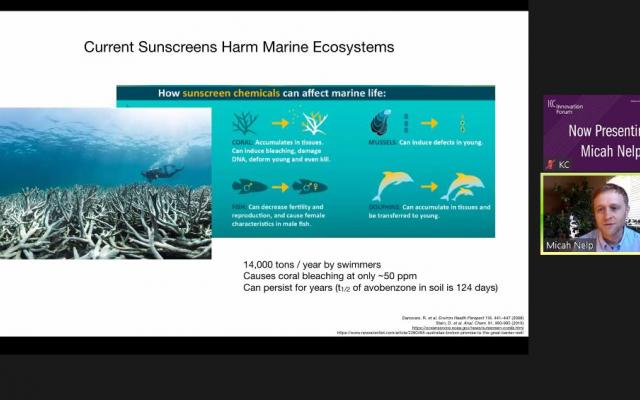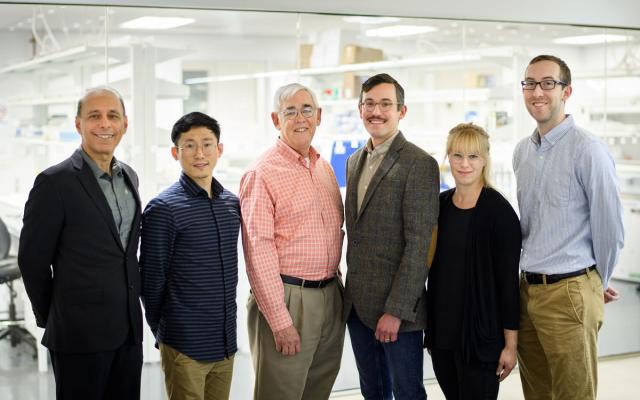
Rodney Priestley, professor of chemical and biological engineering and a leading researcher in the area of complex materials and processing, is Princeton University's vice dean for innovation, effective Feb. 3, 2020. The newly created position provides academic leadership for innovation and entrepreneurship activities across campus.
Priestley has published nearly 100 articles, edited a book, and is co-inventor on four patent-pending technologies in the area of drug-delivery and polymer colloids, substances that make up gels and emulsions. His research group is focused on understanding how materials that undergo changes in their properties and join together when confined in tiny spaces open new possibilities for a vast range of novel applications, including drug delivery, designer colloids and sustainable manufacturing. Priestley is engaged in three industry-university research collaborations in the areas of pharmaceuticals and cosmetics as well as polymer nanocomposite design, and is the co-founder of two companies that are working to translate University intellectual property into technologies or products.
Priestley serves as the associate director of the Princeton Center for Complex Materials and is the director of graduate studies for the Department of Chemical and Biological Engineering. He is the faculty co-director of the newly created Presidential Postdoctoral Research Fellows Program, aimed at enhancing diversity and addressing underrepresentation across campus, and is the faculty adviser to the National Society of Black Engineers student chapter. He is also affiliated with the Princeton Institute for the Science and Technology of Materials.
Priestley joined Princeton as an assistant professor in 2009, after completing a postdoctoral fellowship at École Supérieure de Physique et de Chimie Industrielles in Paris. He received his Ph.D. in chemical engineering in 2008 from Northwestern University and his B.S. in chemical engineering from Texas Tech University in 2003.
Priestley is the recipient of many honors and awards, including the World Economic Forum Young Scientist in 2018, the Leverhulme Trust Fellowship in 2017, the American Institute for Chemical Engineers Owens Corning Early Career Award in 2017, an Alfred P. Sloan Research Fellowship in Chemistry in 2014, the Presidential Early Career Award for Scientists and Engineers in 2013, the Air Force Office of Scientific Research Young Investigator Research Program award in 2012, and a National Science Foundation CAREER Award in 2011.
He has also been honored for his teaching and mentorship. He received the Camille Dreyfus Teacher-Scholar Award in 2014, was selected for The Root 100 list of most influential African Americans in 2014, and was named to the American Society for Engineering Education's list of 20 Under 40 Inspiring Young Faculty in 2014.

